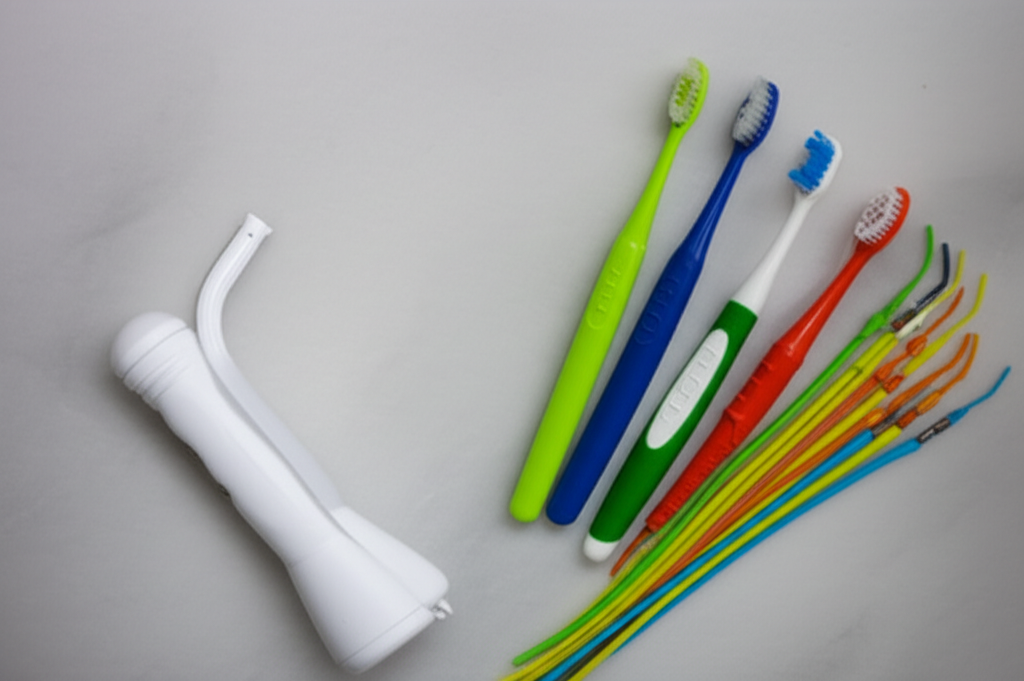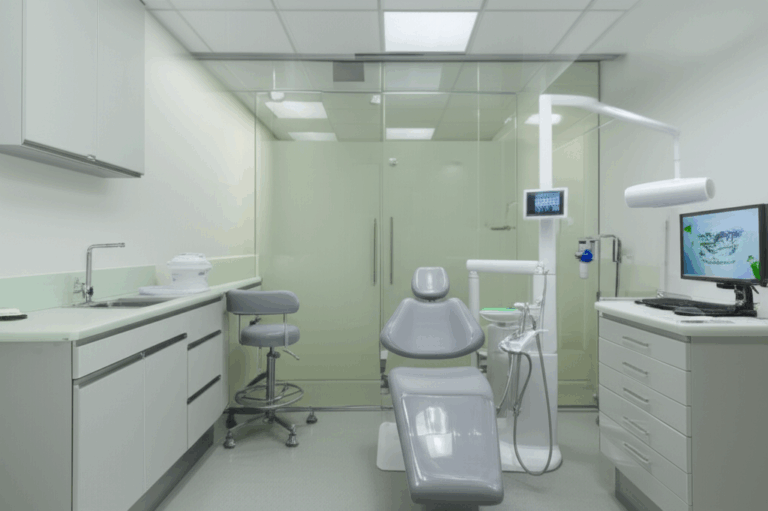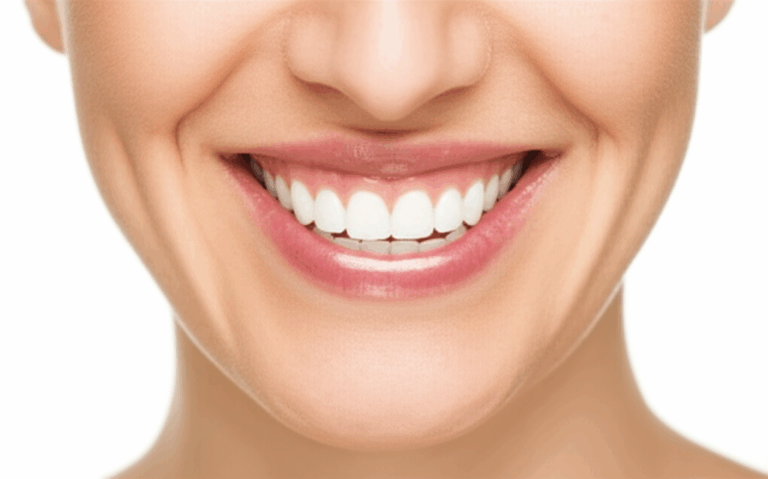
Do You Have to Brush Dental Implants? Essential Care for Longevity & Health
Keeping your dental implants clean isn’t just a good idea—it’s something you have to do. In this article, I’ll show you why brushing every day and looking after your implants is important if you want them to last a long time. We’ll talk about how to clean them, what happens if you don’t clean, and how to care for your gums. I’ll share real stories to show why looking after your implants is just as important as caring for your real teeth. Read on if you want to keep your smile bright for many years!
Table of Contents
Why Should I Care About Cleaning Dental Implants?
Let’s start with the big question—do you really need to brush your dental implants? The answer is a loud, simple yes!
Here’s why: Even though your implant can’t get a cavity, your gums and the bone underneath can still get sick. This can hurt, make your implant loose, and you could even lose it. Dental implants need the same care as regular teeth.
If you think, “Implants don’t get bad, so why bother?”—that’s not true. Sure, the implant itself won’t rot, but the gums and bone holding it in are alive, and need care every day.
If you got implants, you want them to last for many years. Brushing every day is the best way to protect your new smile.
Can Dental Implants Get Cavities?
People ask me a lot: “Can my implants get holes like cavities?” The easy answer is no, the implant itself can’t get a cavity. Dental implants are made from strong things—like titanium or zirconia—that don’t rot like real teeth.
But here’s the thing. The gums and bone around the implant can still get attacked by germs, just like with real teeth. If you let sticky stuff and food build up, you can get swollen, sore gums and even lose bone—dentists call this peri-implantitis.
Peri-implantitis is kind of like a stronger type of gum disease. When it starts, it can be really hard to fix. That’s why you should focus on keeping your gums healthy and not let germs hang around.
What Happens If You Don’t Brush Implants?
Wonder what really happens if you get lazy with cleaning? Here’s what goes on.
First, plaque and bacteria stay on your teeth. Plaque is a soft, sticky film of germs that like to hide where the gum meets the implant. If you leave it, these germs get into your gums and start trouble.
Next, the gums get sore. This is called peri-implant mucositis. It makes your gums red, puffy, and they can bleed. It’s a lot like gingivitis, but around your implant.
Then, the bone around your implant starts to disappear over time. The problem goes deeper, and you can lose bone around your implant.
If things get worse? Your implant can get loose or even fall out. That hurts, costs a lot, and it’s no fun after all your work to get implants put in.
Bottom line: Don’t skip brushing or cleaning. Cleaning your implants every day is how you stop these problems.
How Do I Brush Dental Implants Properly?
Brushing implants is almost the same as brushing real teeth—but be gentle. Here’s my simple, daily way:
You don’t need to brush super hard; just be gentle and do it every day. A little each day adds up over the long run.
Which Tools Should I Use for Implant Cleaning?
There are many tools to help you keep your implants clean. Here’s what I like most:
Flossing: Use “super floss” or floss made for implants. It gets under your gums to take out stuff hiding there. Floss threaders help if you have bridges.
Interdental brushes: These tiny brushes look like little bottle cleaners. Run them between implants and other teeth to remove food. Get the right size—not too big or you hurt your gums, not too small or you might miss spots.
Water flossers/Oral irrigators: If you find string floss hard to use, water flossers are great. They shoot a small stream of water between your teeth and implants to wash away germs.
Mouthwash: Choose an alcohol-free, germ-killing mouthwash. It keeps your breath fresh and gets the germs you might have missed.
If you want to know more about these tools or who makes custom implant parts, you can check out a good implant dental laboratory for tips.
Are There Special Toothpastes and Brushes for Implants?
Just like with any tool, some pastes and brushes are better for implants.
Use a soft brush: Electric or manual is fine, but soft bristles are best. Hard ones can hurt your gums or scratch your implant cap.
Non-abrasive toothpaste: Choose a paste that won’t scratch the implant. Don’t use whitening paste or gritty toothpaste. Gel toothpaste or ones for “sensitive teeth” are usually safe.
Electric toothbrushes: Many people find electric brushes help clean around implants better. If brushing by hand is hard for you, a powered brush can help.
Tip: Don’t brush too hard—even if your brush is soft. Pressing too hard can cause more harm than good.
What Should I Avoid When Cleaning Implants?
Some cleaning habits can make things worse. Here’s what to stay away from:
Stick with soft brushes, gentle moves, and safe pastes.
How Often Do I Need Professional Dental Implant Care?
What you do at home is great, but you still need your dentist’s help.
Regular check-ups: See your dentist every 6 months. They’ll check for any early problems—sometimes with X-rays—to see how your implant and bone are doing.
Professional cleanings: Dental hygienists use special tools made just for cleaning implants. They get what you can miss at home.
Even the best brushers miss some spots. Going for a cleaning is like starting fresh. That’s why people who go for cleanings have better results with their implants! You can read more about the process at a crown and bridge lab.
Do Health and Habits Change Implant Lifespan?
Yes, they do. Even if you brush well, other things matter too:
Health issues: If you have diabetes, gum problems, or if your immune system is weak, you need to be extra careful with your implants. Medicines can also make a difference.
Lifestyle habits: Smoking makes implant problems twice as likely. If you grind your teeth at night (“bruxism”), wearing a night guard can help keep your implant safe. Ask your dentist—they might suggest a custom one from a trusted night guard dental lab.
Food and drink: Eating lots of fresh fruits and veggies is good. Don’t eat too many sticky or sugary things—they can still hurt your gums, even around implants.
Should I Treat Implants Like Real Teeth?
People always ask, “Should I clean my implants like my real teeth?” Here’s my answer—treat your implants as something special!
Brush, floss, and rinse just like you would with your real teeth. Sometimes they deserve even more care. If you keep up the habit, your implants should feel and work just like your own teeth.
Plus, if you take care of them, your whole mouth will be healthier. And you’ll keep your real teeth stronger too.
FAQ
Q: Are dental implants for life?
A: If you look after them well, implants can last many years or even a lifetime. This means brushing every day and seeing the dentist for check-ups.
Q: Can kids get dental implants?
A: Implants are usually for adults. Kids’ jaws are still growing, but talk to a dentist for advice if you have questions.
Q: Is it okay if my gums bleed around my implant?
A: No, your gums shouldn’t bleed when you brush. If they do, see your dentist. It might be the start of a problem.
Q: Can I use mouthwash with implants?
A: Yes, but use one with no alcohol. Alcohol can dry the gums and make things heal slower.
Q: Are implants better than dentures?
A: For lots of people, yes. Implants feel a lot more like real teeth and let you eat normally. If you want to know about dentures, you can check this removable denture lab for more.
Key Points: What to Remember
- Brush and clean dental implants twice a day with a soft, non-scratchy toothbrush.
- Use interdental brushes, floss, and water flossers to get to places a normal brush can’t.
- Pick gentle, no-alcohol products to keep your gums and implants safe.
- Go to your dentist often—usually every 6 months—for professional cleaning and check-ups.
- Stay away from smoking, take care of your health, and eat tooth-friendly food to keep implants in good shape.
- Don’t use rough tools or brush too hard. Gentle is best.
- Treat your implants like your best real teeth—they’re worth it!
If you want your implants to last (and I bet you do), good care at home and regular visits to the dentist or a trusted china dental lab will help your smile stay great for a long time.
And remember—if you ever have a question or something feels wrong, call your dentist right away. Your smile matters!








